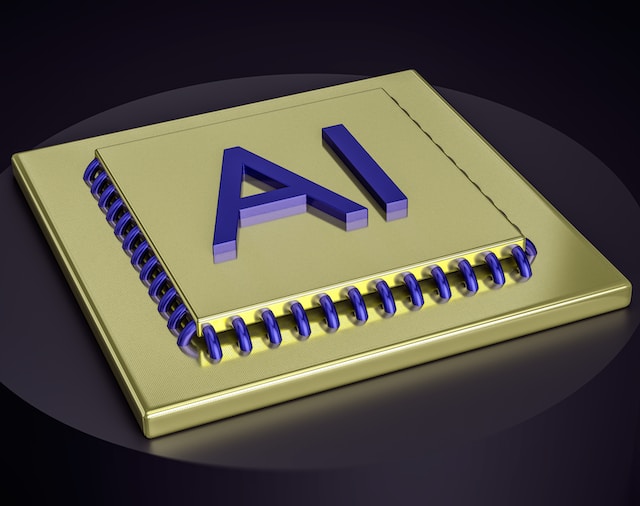Quantum computing is an emerging field that has the potential to revolutionize various industries, including artificial intelligence (AI). As researchers continue to make advancements in quantum computing technology, it is important to understand how this disruptive technology will impact AI applications. In this article, we will explore the intersection of quantum computing and AI, examining the potential benefits, challenges, and implications for the future.
How Will Quantum Computing Affect Artificial Intelligence Applications? Quantum computing is a branch of computer science that leverages the principles of quantum mechanics to perform complex computations. Unlike classical computers, which use bits to represent information as either a 0 or 1, quantum computers utilize quantum bits, or qubits, which can exist in multiple states simultaneously. This ability to exist in superposition and perform parallel computations enables quantum computers to solve certain problems much faster than classical computers.
Artificial intelligence refers to the simulation of human intelligence in machines, allowing them to perform tasks that typically require human cognitive abilities. AI encompasses various techniques, including machine learning, deep learning, natural language processing, and computer vision. AI algorithms learn from vast amounts of data to recognize patterns, make predictions, and automate complex tasks.
The Convergence of Quantum Computing and Artificial Intelligence The convergence of quantum computing and AI holds great potential for advancing the capabilities of AI applications. By harnessing the power of quantum computing, AI systems can tackle more complex problems, process data at unprecedented speeds , and improve the efficiency and accuracy of various tasks. Let’s explore some key areas where quantum computing can significantly impact AI applications.
Enhanced Data Processing One of the primary advantages of quantum computing is its ability to process and analyze vast amounts of data quickly. As AI applications rely on large datasets for training and decision-making, quantum computing can accelerate data processing, enabling AI algorithms to handle more extensive and complex datasets. This capability opens up new possibilities for AI in areas such as medical research, climate modeling, and financial analysis.
Improved Machine Learning Algorithms Machine learning algorithms form the backbone of AI systems, and quantum computing can enhance their performance. Quantum machine learning algorithms can leverage the principles of superposition and entanglement to explore larger solution spaces and discover more optimized models. These algorithms can potentially improve prediction accuracy, optimize resource allocation, and enable more efficient training of AI models.
Optimization and Problem-Solving Quantum computing excels in solving optimization problems, which are prevalent in many AI applications. Tasks such as route optimization, resource allocation, and portfolio management can benefit from quantum algorithms that can explore all possible solutions simultaneously. By leveraging quantum computing, AI systems can find optimal solutions more efficiently, leading to improved performance and cost savings.
For example, in logistics and supply chain management, quantum algorithms can optimize transportation routes, warehouse operations, and inventory management, resulting in reduced costs and improved efficiency. Security and Encryption Data security is a critical concern in AI applications, and quantum computing can have a significant impact on encryption and cybersecurity. Quantum computers have the potential to break conventional encryption methods, such as RSA and ECC, which rely on the difficulty of factoring large numbers.
However, quantum cryptography offers alternative encryption techniques that utilize the principles of quantum mechanics to provide secure communication channels. The integration of quantum computing and AI can lead to the development of more robust security measures and encryption algorithms, ensuring the confidentiality and integrity of sensitive data. Challenges in Harnessing Quantum Computing for AI While the fusion of quantum computing and AI presents numerous opportunities, several challenges need to be addressed for their successful integration.
Integration and Compatibility Integrating quantum computing technologies into existing AI frameworks and infrastructure is a complex task. Quantum computers have different hardware requirements and programming models compared to classical computers. Adapting AI algorithms and frameworks to take advantage of quantum computing capabilities requires significant research and development efforts.
Furthermore, ensuring compatibility between quantum and classical systems poses additional challenges. Cost and Infrastructure Quantum computing is still in its early stages, and the technology is expensive and resource-intensive. Building and maintaining quantum computers with the required qubit counts and stability is a significant investment.
The cost of developing and scaling quantum computing infrastructure may limit widespread adoption in AI applications, especially for smaller organizations. However, as the technology advances and becomes more accessible, the costs are expected to decrease. Ethical Considerations As with any emerging technology, the convergence of quantum computing and AI raises ethical considerations.
Quantum computing’s immense processing power can have both positive and negative implications. AI algorithms running on quantum computers could amplify biases and discrimination in training data, leading to unintended consequences. It is essential to establish ethical guidelines and frameworks to ensure the responsible and unbiased use of quantum computing in AI applications.
How will quantum computing impact the speed of AI algorithms? Can quantum computing enhance the accuracy of AI predictions? Will quantum computing replace traditional computing in AI applications? What are the potential risks of using quantum computing in AI? How can quantum computing improve natural language processing in AI? Is there a timeline for the integration of quantum computing and AI? The convergence of quantum computing and artificial intelligence holds immense potential to reshape various industries and revolutionize AI applications. Quantum computing’s ability to process vast amounts of data, optimize algorithms, enhance security, and tackle complex problems can unlock new possibilities for AI systems. However, challenges such as integration, cost, and ethical considerations need to be addressed to ensure responsible and effective utilization of this powerful technology.
As quantum computing continues to advance, it will undoubtedly have a profound impact on the future of artificial intelligence applications . .
From: visionary_finance
URL: https://visionary-finance.com/how-will-quantum-computing-affect-artificial-intelligence-applications/



